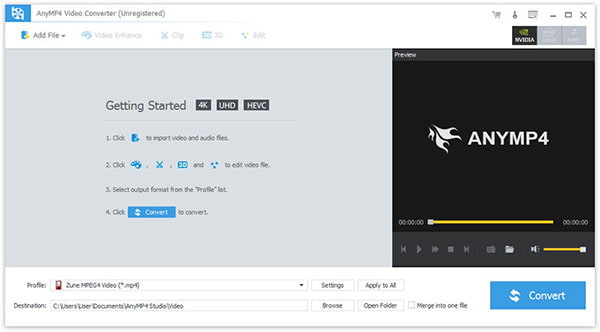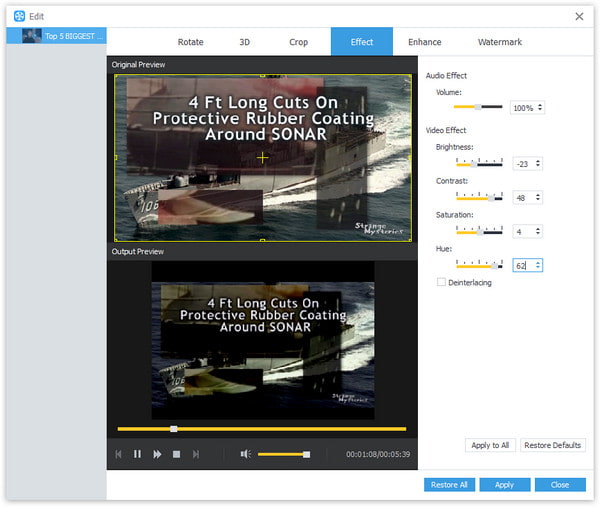
(MPEG-1) is a standard for lossy compression of video and audio. It is designed to compress VHS-quality raw digital video and CD audio down to 1.5 Mbit/s (26:1 and 6:1 compression ratios respectively) without excessive quality loss, making video CDs, digital cable/satellite TV and digital audio broadcasting (DAB) possible. Today, MPEG-1 has become the most widely compatible lossy audio/video format in the world, and is used in a large number of products and technologies.
- - Wikimedia
The format specifies a multimedia container file that contains one or more tracks, each of which stores a particular type of data: audio, video, or text (e.g. for subtitles). Each track either contains a digitally-encoded media stream (using a specific format) or a data reference to the media stream located in another file. Tracks are maintained in a hierarchical data structure consisting of objects called atoms.
- - Wikimedia

Step 1. Download and install the program, then double click it to run it, and then you'll see the main interface of the program.

Step 2. Click "Add File(s)" button. Here you can select "Add Video" or "Add Folder" button to add files as you like.

Step 3. Click the drop-down arrow right beside the "Profile" column and select your desired video format from the drop-down list.

Step 4. Click "Edit" button to customize the output video like Effect, Trim, Crop, 3D Settings and Watermark.